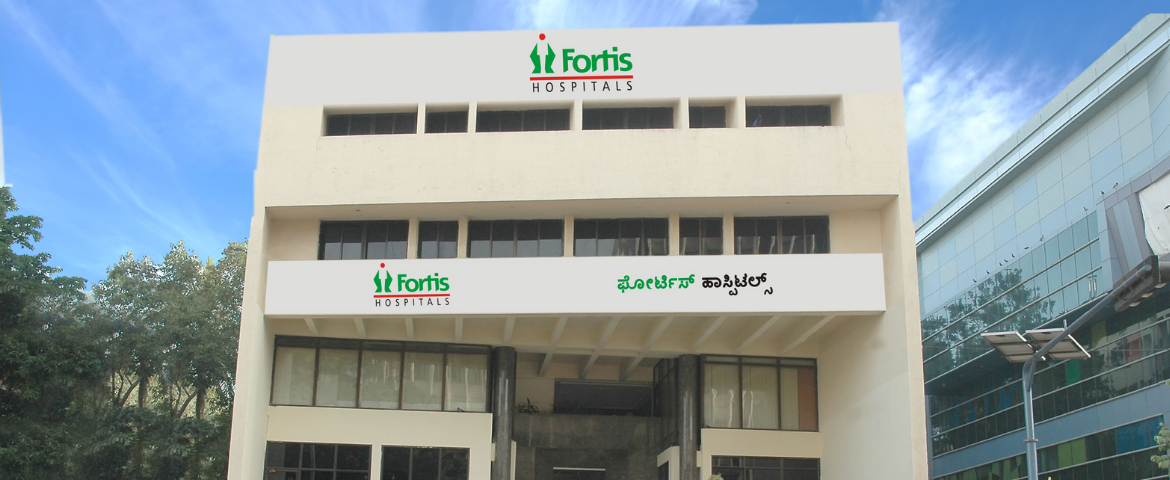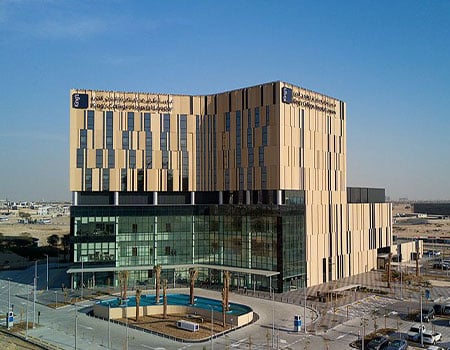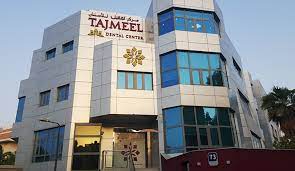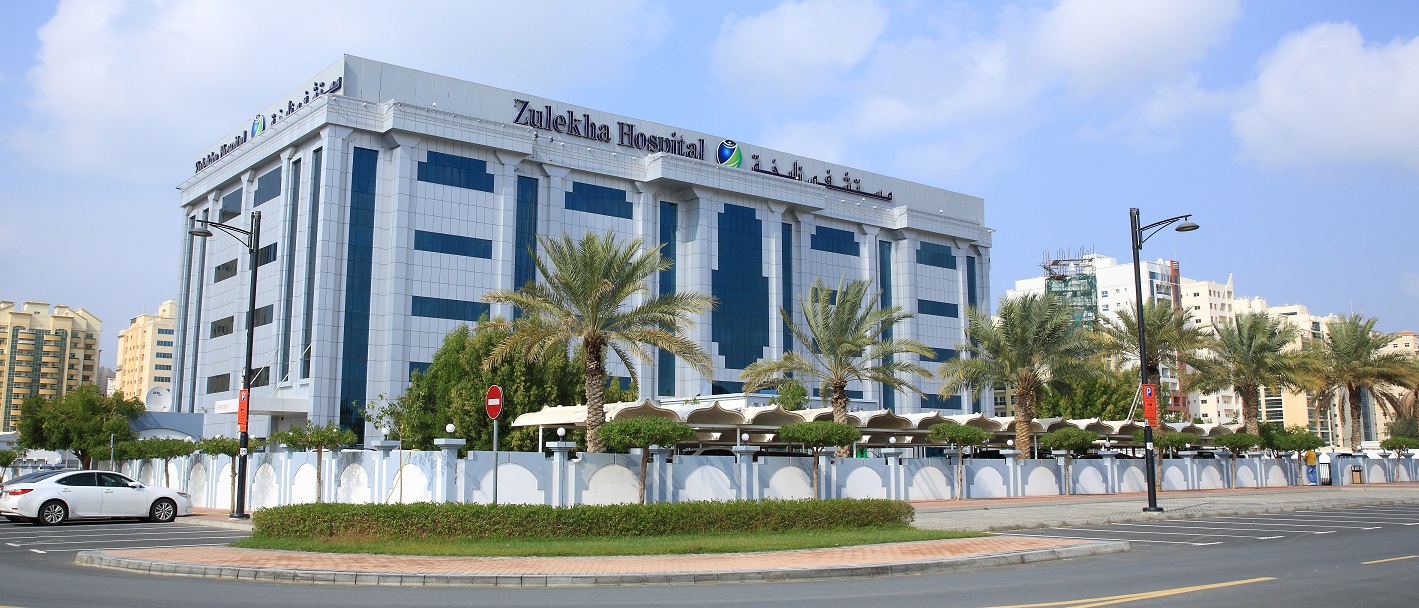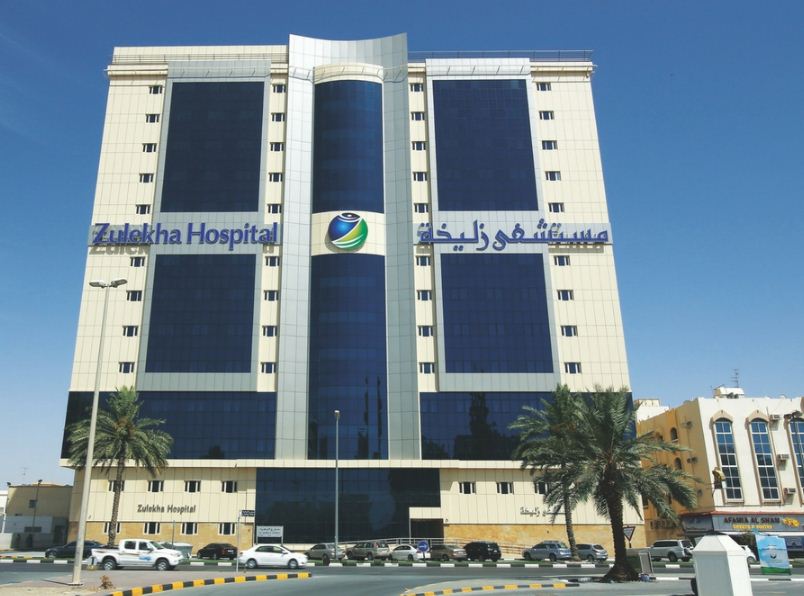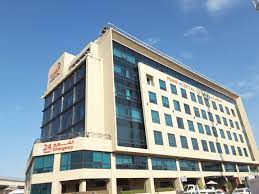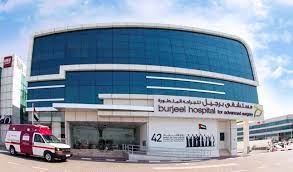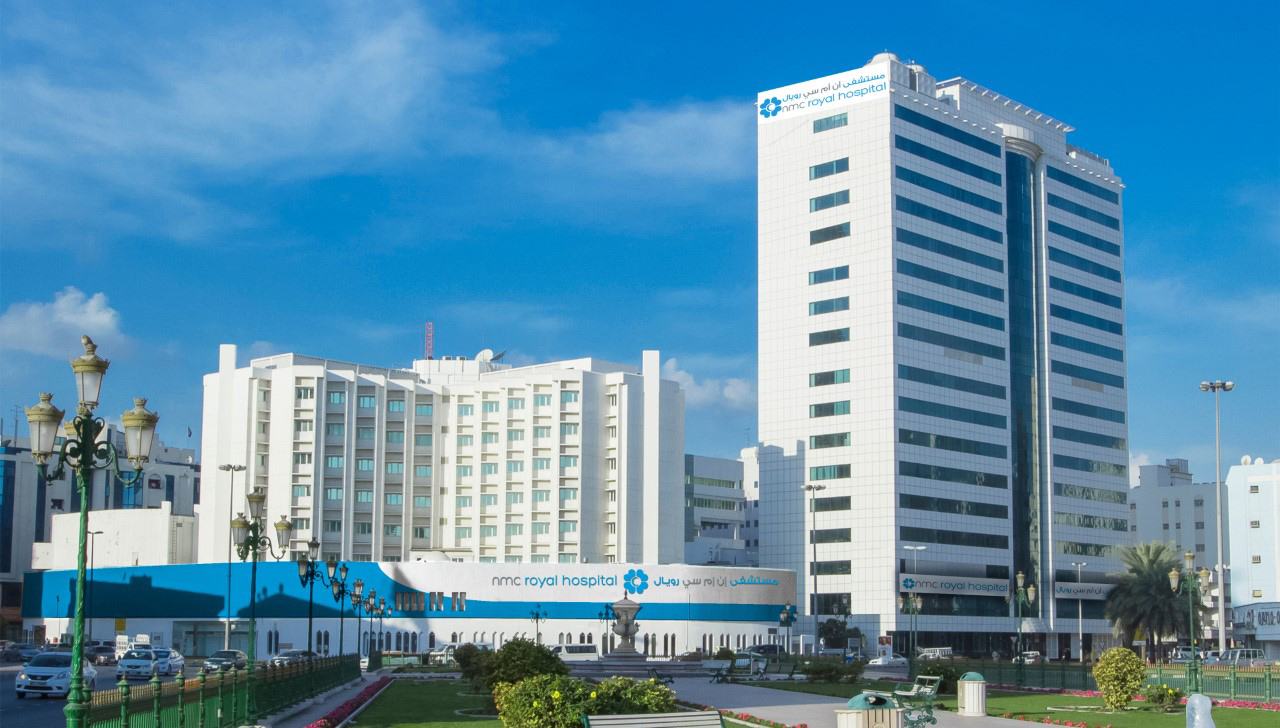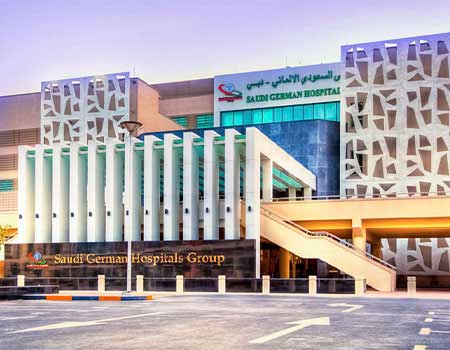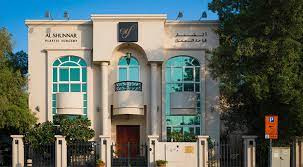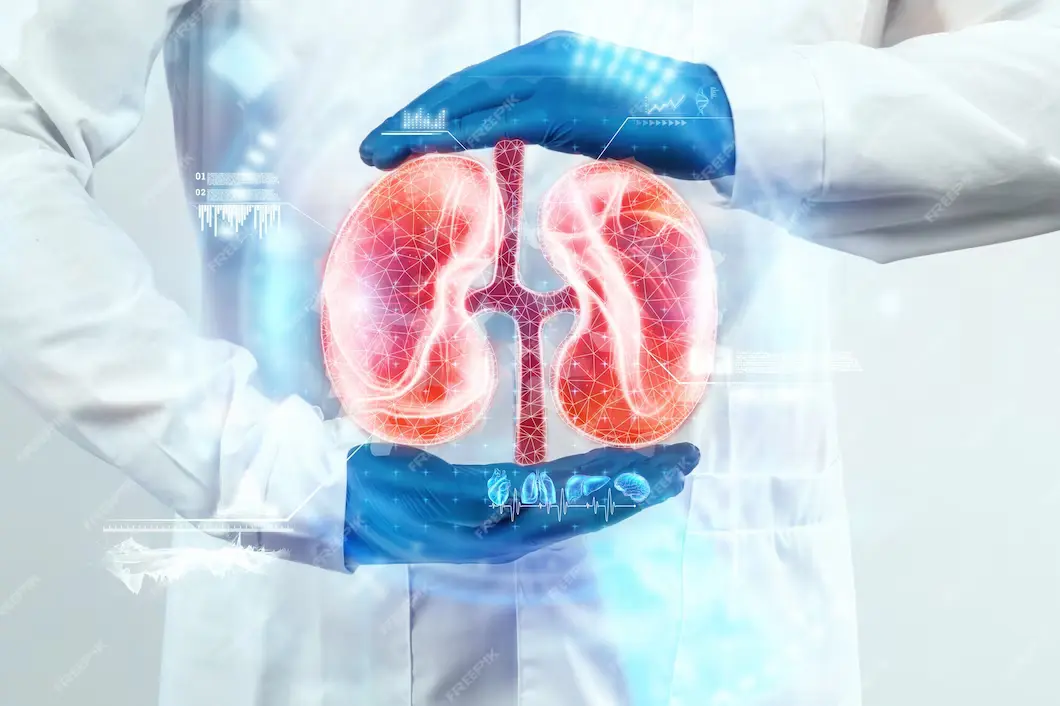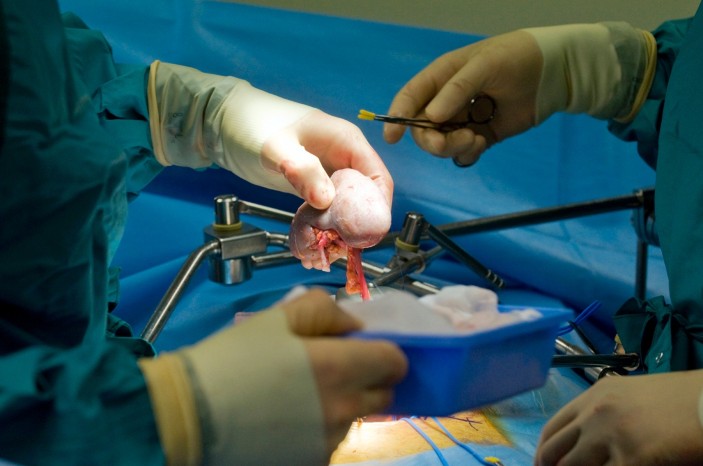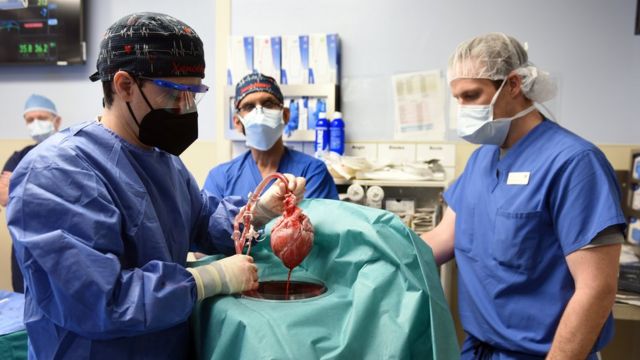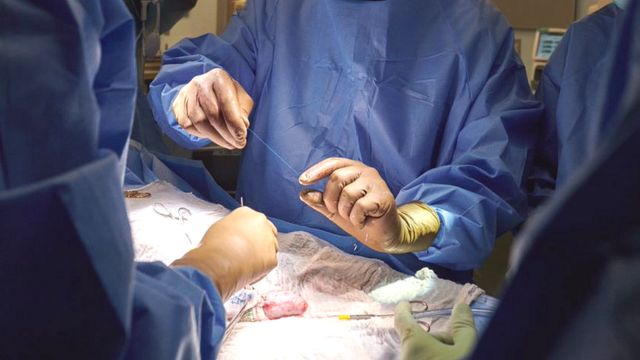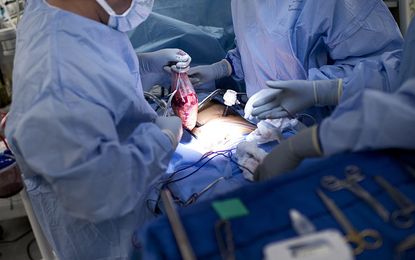Kidney Transplant cost in United
The cost of Kidney Transplant in UAE ranges from USD 47000 to USD 58000
Kidney Transplant:
A kidney transplant, also known as a renal transplant, is when a patient with end-stage kidney disease receives an organ transplant of a kidney. Depending on the source of the donor organ, kidney transplantation is usually classed as deceased-donor or living-donor transplantation.
Disease Overview:
Kidney failure
Kidney failure occurs when the kidneys are unable to filter metabolic waste products from the blood sufficiently.
Kidney failure can be caused by a variety of factors. Some cause a fast deterioration in kidney function (acute kidney injury, also called acute renal failure). Others cause kidney function to deteriorate over time (chronic kidney disease, also called chronic renal failure). The kidneys are less able to control the amount and distribution of water in the body (fluid balance), as well as the levels of electrolytes (sodium, potassium, calcium, phosphate) and acid in the blood, due to their inability to filter metabolic waste products (such as creatinine and urea nitrogen) from the blood.
Blood pressure frequently rises when renal failure has been present for a long period. A low red blood cell count occurs when the kidneys lose their capacity to generate enough erythropoietin, a hormone that encourages the creation of new red blood cells (anemia). The kidneys also lose their capacity to generate enough calcitriol (vitamin D's active form), which is essential for bone health. Kidney failure has an impact on bone development in youngsters. Kidney failure can cause weaker, deformed bones in both children and adults.
Although kidney function can diminish at any age, older persons are more likely than younger people to suffer from acute renal injury or chronic kidney disease.
Many conditions that cause renal function decrease can be treated, and kidney function can sometimes be restored. Kidney failure has been turned from a deadly condition to one that can be managed because to the availability of dialysis and kidney transplantation.
Disease Signs and Symptoms
Acute renal failure can cause the following signs and symptoms:
- Urine production is reduced, however it might occasionally return to normal.
- Swelling in your legs, ankles, or feet is caused by fluid retention.
- Breathing problems
- Fatigue
- Confusion
- Nausea
- Weakness
- Irregular heartbeat is a condition in which the heartbeat is irregular.
- Pain or pressure in the chest
- In extreme circumstances, seizures or coma may occur.
- Acute renal failure can sometimes go unnoticed and only be identified through lab testing performed for another reason.
Disease Causes:
Acute renal failure can develop when one or more of the following conditions exist:
- You have a disorder that causes your kidneys' blood flow to slow down.
- Your kidneys are damaged in a direct way.
- The urine drainage tubes (ureters) in your kidneys become clogged, preventing wastes from leaving your body through urine.
- Kidney blood flow is obstructed.
The following diseases and disorders can cause kidney damage by slowing blood flow to the kidneys:
- Loss of blood or fluid
- Medication for high blood pressure
- Angina pectoris
- Coronary artery disease
- Infection
- Failure of the liver
- Aspirin, ibuprofen (Advil, Motrin IB, and others), naproxen sodium (Aleve, and others), and other pain relievers
- A severe allergic response has occurred (anaphylaxis)
- Burns that are severe
- Dehydration is a serious problem.
- Kidney damage is common.
Acute renal failure can be caused by the following illnesses, conditions, and agents:
- Blood clots in and around the kidneys' veins and arteries
- Cholesterol deposits in the kidneys that obstruct blood flow
- Glomerulonephritis is an inflammation of the small filters in the kidneys (gloe-mer-u-loe-nuh-FRY-tis) (glomeruli)
- Hemolytic uremic syndrome is a disorder that occurs when red blood cells are destroyed prematurely.
- Infection, such as that caused by the coronavirus virus in 2019. (COVID-19)
- Lupus is an autoimmune disease that causes glomerulonephritis.
- Medications utilised during imaging examinations, such as some chemotherapeutic medications, antibiotics, and colours
- Scleroderma is a term used to describe a group of uncommon illnesses that affect the skin and connective tissues.
- A uncommon blood condition called thrombotic thrombocytopenic purpura
- Toxins such as alcohol, heavy metals, and cocaine are examples of toxins.
- Rhabdomyolysis is the breakdown of muscle tissue that results in kidney injury due to toxins produced by the loss of muscle tissue.
- Tumor lysis syndrome occurs when tumour cells break down, releasing poisons that can harm the kidneys.
- Blockage of urine in the kidneys
Urinary blockages are diseases and disorders that prevent urine from leaving the body and can cause acute kidney damage.
- Bladder cancer is a kind of cancer that affects the bladder
- Urine clots are blood clots that form in the urinary system.
- Cervical cancer is a kind of cancer that affects the female
- Colon cancer
- Prostate enlargement
- Stones in the kidneys
- Nerve injury affecting the bladder's control nerves
- Prostate cancer is a kind of cancer that affects men
Factors that are at risk
Acute renal failure is nearly always the result of another medical disease or incident. Acute renal failure can be caused by a number of factors, including:
- senior citizen
- Blockages in your arms or legs' blood vessels (peripheral artery disease)
- Diabetes
- Blood pressure that is too high
- Insufficiency of the heart
- Diseases of the kidneys
- Diseases of the liver
- Some malignancies, as well as their therapies
- a senior citizen
Disease Diagnosis:
Your doctor may prescribe specific tests and treatments to confirm your diagnosis if your signs and symptoms suggest you have acute renal failure. These may include the following:
- Measuring the flow of urine Measuring how much urine you produce in a 24-hour period might help your doctor figure out what's causing your kidney failure.
- Urine tests are performed. Urinalysis (the analysis of a sample of your urine) can uncover abnormalities that indicate renal failure.
- Tests on the blood. A blood sample may indicate rapidly rising urea and creatinine levels, two chemicals used to assess kidney function.
- Imaging tests are performed. Your doctor may use imaging tests such as ultrasound and computed tomography to see your kidneys.
- A sample of kidney tissue is removed for examination.
Your doctor may prescribe a kidney biopsy to remove a tiny sample of kidney tissue for laboratory examination in some cases. To extract the sample, your doctor inserts a needle through your skin and into your kidney.
Disease treatment:
A hospital stay is usually required for acute renal failure treatment. The majority of persons with acute renal failure have previously been admitted to a hospital. The length of your hospital stay is determined by the cause of your acute renal failure and how fast your kidneys recover.
You might be able to heal at home in some circumstances.
The underlying cause of your kidney damage must be addressed.
The first step in treating acute renal failure is to figure out what caused your kidneys to be damaged in the first place. Your treatment options will be determined by the cause of your renal failure.
Complications will be treated until your kidneys have recovered.
In addition, your doctor will attempt to avoid problems and give your kidneys time to recuperate. Complications can be avoided with the following treatments:
Treatments can help you maintain a healthy fluid balance in your blood. Your doctor may suggest intravenous (IV) fluids if your acute kidney failure is caused by a shortage of fluids in your blood. Acute renal failure might also cause you to retain too much fluid, resulting in arm and leg edoema. In certain situations, your doctor may prescribe diuretics, which cause your body to remove excess fluids.
Medications to regulate potassium levels in the blood. To avoid the buildup of excessive amounts of potassium in your blood, your doctor may give calcium, glucose, or sodium polystyrene sulfonate (Kionex) if your kidneys aren't filtering potassium from your blood adequately. Potassium deficiency can lead to serious abnormal heartbeats (arrhythmias) and muscular weakness.
Medications that help to restore calcium levels in the blood. If your calcium levels in your blood go too low, your doctor may suggest a calcium infusion.
Toxins are removed from your blood by dialysis. If toxins build up in your blood, you may require temporary hemodialysis (also known as dialysis) to help eliminate them from your body while your kidneys heal. Dialysis may also assist in the removal of excessive potassium from the body. During dialysis, a machine pumps blood out of your body and filters it through an artificial kidney (dialyzer). After that, the blood is returned to your body.
Home cures and a healthy lifestyle
Your doctor may prescribe a particular diet to assist maintain your kidneys and reduce the work they have to do throughout your recovery from acute renal failure. Your doctor may send you to a dietician who will assess your current diet and provide recommendations to make it easier on your kidneys.
Your dietitian may advise you to: Choose reduced potassium foods, depending on your circumstances. Your nutritionist may advise you to eat meals with less potassium. Bananas, oranges, potatoes, spinach, and tomatoes are all high in potassium. Apples, cauliflower, peppers, grapes, and strawberries are examples of low-potassium foods.
Avoid goods that have been salted. Avoid goods with added salt, which include many convenience meals like frozen dinners, canned soups, and fast food, to reduce the amount of sodium you consume each day. Salty snacks, canned veggies, and processed meats and cheeses are some of the other items with added salt.
Phosphorus should be limited. Phosphorus is a mineral found in whole-grain bread, oats, bran cereals, dark-colored colas, almonds, and peanut butter, among other foods. A high phosphorus level in the blood can weaken your bones and cause skin irritation. Your dietician can provide you precise phosphorus guidelines and how to reduce it in your case.
You may not need to consume a particular diet while your kidneys recover, but good eating is always vital.
Country wise cost comparison for Kidney Transplant:
| Country | Cost |
|---|---|
| India | $13950 |
| Turkey | $20088 |
| United Arab Emirates | $53200 |
| Egypt | $19423 |
| Canada | $29298 |
Treatment and Cost
45
Total Days
In Country
- 7 Day in Hospital
- 2 No. Travelers
- 38 Days Outside Hospital
Treatment cost starts from
$0
Popular Hospital & Clinic
Featured Hospital
23 Hospitals
Types of Kidney Transplant in Iranian Hospital, Dubai and its associated cost
| Treatment Option | Approximate Cost Range (USD) |
|---|---|
| No Treatment option added | |
- Address: Al Wasl Rd - Al Bada'a - Dubai - United Arab Emirates
- Facilities related to Iranian Hospital, Dubai: Dedicated Case Managers, Airport Transfers (Pick up and Drop), Prepaid Calling Card, Medical Summary Before Discharge, Money Exchange/ATM Facilities, Hotel Accommodation Assistance, Cab Assistance, WiFi in Rooms, Global Cuisines, Visa Facilitation Services, Attendant Meal Services, VIP/Suite Hospital Rooms, Personal Dietician During InPatient Treatment, 24*7 Translator Services,
6
DOCTORS IN 11 SPECIALITIES
20+
FACILITIES & AMENITIES
Types of Kidney Transplant in Kings College Hospital Dubai and its associated cost
| Treatment Option | Approximate Cost Range (USD) |
|---|---|
| No Treatment option added | |
- Address: East Exit - Alkhail Street - Al Marabea' St - Dubai Hills - Dubai - United Arab Emirates
- Facilities related to Kings College Hospital Dubai: Accommodation, Airport Transfer, Choice of Meals, Interpreter, SIM, TV inside room,
8
DOCTORS IN 11 SPECIALITIES
20+
FACILITIES & AMENITIES
Types of Kidney Transplant in Tajmeel Royal Clinic, Dubai and its associated cost
| Treatment Option | Approximate Cost Range (USD) |
|---|---|
| No Treatment option added | |
- Address: Umm Al Sheif - Dubai - United Arab Emirates
- Facilities related to Tajmeel Royal Clinic, Dubai: Airport Transfer, Interpreter, SIM,
5
DOCTORS IN 11 SPECIALITIES
20+
FACILITIES & AMENITIES
Types of Kidney Transplant in Zulekha Hospital Dubai and its associated cost
| Treatment Option | Approximate Cost Range (USD) |
|---|---|
| No Treatment option added | |
- Address: Opp Al Nahda Park - 204th Rd - Al Nahda - Al Nahda 2 - Dubai - United Arab Emirates
- Facilities related to Zulekha Hospital Dubai: Accommodation, Airport Transfer, Choice of Meals, Interpreter, SIM, TV inside room,
6
DOCTORS IN 11 SPECIALITIES
20+
FACILITIES & AMENITIES
Types of Kidney Transplant in Zulekha Hospital Sharjah and its associated cost
| Treatment Option | Approximate Cost Range (USD) |
|---|---|
| No Treatment option added | |
- Address: Al Zahra'a St - Al Sharq - Al Nasserya - Sharjah - United Arab Emirates
- Facilities related to Zulekha Hospital Sharjah: Accommodation, Airport Transfer, Choice of Meals, Interpreter, SIM, TV inside room,
7
DOCTORS IN 11 SPECIALITIES
20+
FACILITIES & AMENITIES
Types of Kidney Transplant in Prime Hospital, Dubai and its associated cost
| Treatment Option | Approximate Cost Range (USD) |
|---|---|
| No Treatment option added | |
- Address: No. 203, Shk. Saud Building, Opposite Al Reef mall, Deira - Dubai - United Arab Emirates
- Facilities related to Prime Hospital, Dubai: Regular Medical Emergency Care available. Advanced Cardiac Cath Lab for instant Angiography, Adult Intensive Care Unit, Pediatric Intensive Care Unit, Coronary Care Unit, Neonatal Intensive Care Unit, Dedicated Maternity & Child Floor, Day Surgery Unit, Family Clinic,
8
DOCTORS IN 11 SPECIALITIES
20+
FACILITIES & AMENITIES
Types of Kidney Transplant in Burjeel Hospital for Advanced Surgery Dubai and its associated cost
| Treatment Option | Approximate Cost Range (USD) |
|---|---|
| No Treatment option added | |
- Address: Sheikh Zayed Rd - Al Quoz - Dubai - United Arab Emirates
- Facilities related to Burjeel Hospital for Advanced Surgery Dubai: Private Rooms, Translator, Nursery / Nanny Services, Airport Pick up, Personal Assistance / Concierge, Free Wifi, Local Tourism Options, International Cuisine, Phone in Room, Private Driver / Limousine Services, Post operative followup, Mobility Accessible Rooms, Online Doctor Consultation, Air Ambulance, Religious Facilities, Rehabilitation, Cafe, TV in room, Car Hire, Health Insurance Coordination,
10
DOCTORS IN 11 SPECIALITIES
20+
FACILITIES & AMENITIES
Types of Kidney Transplant in NMC Royal Hospital Sharjah and its associated cost
| Treatment Option | Approximate Cost Range (USD) |
|---|---|
| No Treatment option added | |
- Address: Al Zahra St, Near Clock Tower - Sharjah - United Arab Emirates
- Facilities related to NMC Royal Hospital Sharjah: Translator, Nursery / Nanny Services, Airport Pick up, Personal Assistance / Concierge, Free Wifi, Local Tourism Options, International Cuisine, Phone in Room, Private Driver / Limousine Services, Post operative followup, Mobility Accessible Rooms, Online Doctor Consultation, Air Ambulance, Religious Facilities, Rehabilitation, Cafe, TV in room, Car Hire, Health Insurance Coordination,
6
DOCTORS IN 11 SPECIALITIES
20+
FACILITIES & AMENITIES
Types of Kidney Transplant in Saudi German Hospital, Dubai and its associated cost
| Treatment Option | Approximate Cost Range (USD) |
|---|---|
| No Treatment option added | |
- Address: Hessa Street 331 West, Al Barsha 3, Exit 36 Sheikh Zayed Road, Opposite of American School - Dubai
- Facilities related to Saudi German Hospital, Dubai: Private Rooms, Translator, Nursery / Nanny Services, Airport Pick up, Personal Assistance / Concierge, Free Wifi, Local Tourism Options, International Cuisine, Phone in Room, Private Driver / Limousine Services, Post operative followup, Mobility Accessible Rooms, Online Doctor Consultation, Air Ambulance, Religious Facilities, Rehabilitation, Cafe, TV in room, Car Hire, Health Insurance Coordination,
5
DOCTORS IN 11 SPECIALITIES
20+
FACILITIES & AMENITIES
Types of Kidney Transplant in AL SHUNNAR PLASTIC SURGERY CLINIC, Dubai and its associated cost
| Treatment Option | Approximate Cost Range (USD) |
|---|---|
| No Treatment option added | |
- Address: Umm Suqeim - Umm Suqeim 1 - Dubai - United Arab Emirates
- Facilities related to AL SHUNNAR PLASTIC SURGERY CLINIC, Dubai:
3
DOCTORS IN 11 SPECIALITIES
20+
FACILITIES & AMENITIES
Related Packages
More Related Information
Some of the top rated doctors are:
- Italy
Some of the top rated hospitals are:
- India
- Fortis Memorial Research Institute
- BLK-Max Super Speciality Hospital
- Medanta-The Medicity, Gurgaon
- Indraprastha Apollo Hospitals, New Delhi
- Turkey
- Kolan International Hospital, Sisli
- Istinye University Bahcesehir Liv Hospital
- Istinye University Medical Park Gaziosmanpasa Hospital
- I.A.U VM Medical Park Florya Hospital
- Altinbas University Medical Park Bahcelievler Hospital
- Medical Park Antalya Hospital
- Medical Park Tarsus Hospital, Mersin
- Thailand
- Bangpakok 9 International Hospital
- Bumrungrad International Hospital
- Bangkok Hospital
- Bangkok International Hospital
- Samitivej Hospital
- BNH Hospital
- Aek Udon International Hospital
- Phuket International Hospital
- Bangkok Christian Hospital
- Thonburi Hospital
- Kasemrad Hospital Sriburin
- United Arab Emirates
- Burjeel Hospital, Abu Dhabi
- New Hope IVF Gynaecology & Fertility Hospital, Sharjah
- Iranian Hospital, Dubai
- Kings College Hospital Dubai
- Zulekha Hospital Sharjah
- Burjeel Hospital for Advanced Surgery Dubai
- Burjeel Medical City, Abu Dhabi
- NMC Royal Hospital, Khalifa City, Abu Dhabi
- NMC Royal Hospital Sharjah
- AL NOOR HOSPITAL, Abu Dhabi
- Al Zahra hospital, Dubai
- NMC Specialty Hospital, Al Nahda, Dubai
- Egypt
- Cleopatra Hospital
- As-Salam International Hospital, Cairo
- Nile Hospital, Hurghada
- Andalusia Group For Healthcare, Maadi
- Saudi German Hospital, Cairo
- Elite Hospital, Alexandria
- Ganzouri specialized hospital
- Al Shrouk Hospital, Cairo
- Nile Badrawy Hospitals, Cairo
- Dar Al Fouad Hospital's (DAFH)
- Canada
- Toronto General Hospital
- Jewish General Hospital
- Montreal General Hospital (McGill University Health Centre)
- Royal Jubilee Hospital (RJH)
- The Royal Victoria Hospital (McGill University Health Centre)
- Centre hospitalier de l’Université de Montréal (CHUM)
- Victoria General Hospital
- St Michaels Hospital Toronto
- Hamilton General Hospital
- MCMASTER UNIVERSITY MEDICAL CENTRE
- University of Ottawa Heart Institute
- Jordan
- King Abdullah University Hospital
- Istishari Hospital
- Al Khalidi Hospital & Medical Center
- Al Essra Hospital
- The Specialty Hospital
- Islamic Hospital
- Jordan Hospital
- Abdulhadi Hospital
- Queen Alia Heart Institute
- King Hussein Hospital
- Istiklal Hospital
- United Kingdom
- Cancer Centre London
- The Highgate Hospital
- The Holly Hospital
- The Parkside Hospital
- Circle Reading Hospital
- Shirley Oaks Hospital
- St Edmunds Hospital
- The London Clinic
- Woodlands Hospital
- The Christie NHS Foundation Trust
- Royal Marsden Hospital
- Queen Elizabeth Hospital Birmingham
- London Bridge Hospital, HCA Healthcare
- Saudi Arabia
- Italy
Frequently Asked Questions
In the United Arab Emirates, a number of hospitals provide kidney transplant services. For instant reference, the top kidney transplant hospitals in the United Arab Emirates are listed below:
1- Burjeel Medical City
2- Kings College Hospital Dubai
3- Prime Hospital, Dubai
4- Saudi German Hospital, Dubai
5- Thumbay Hospital, Dubai
One of the greatest locations in the world for kidney transplants is thought to be the United Arab Emirates. This is due to the availability of some of the top physicians, cutting-edge medical equipment, and well-maintained hospital facilities. Nonetheless, the following are a few more well-liked kidney transplant locations:
India
Singapore
South Africa
Thailand
South Korea
Israel
Turkey
The price of a kidney transplant in the United Arab Emirates can vary depending on the hospital. The total cost of the kidney transplant package typically covers all of the patient's pre- and post-surgery costs. Anesthesia, medications, hospital stays, and the surgeon's fee are all included in the cost of a kidney transplant in the United Arab Emirates. The cost of a kidney transplant in the United Arab Emirates may also rise if you stay outside of the package, have port-operative issues, or are diagnosed with a new illness.
In the United Arab Emirates, kidney transplants are available in numerous cities, including the following:
Abu Dhabi
Following a kidney transplant, the patient is expected to require observation and care at the hospital for around seven days. During this time, the patient's recuperation is evaluated by the medical team by imaging scans and blood tests. The patient is released as soon as they believe everything is proceeding as planned.

